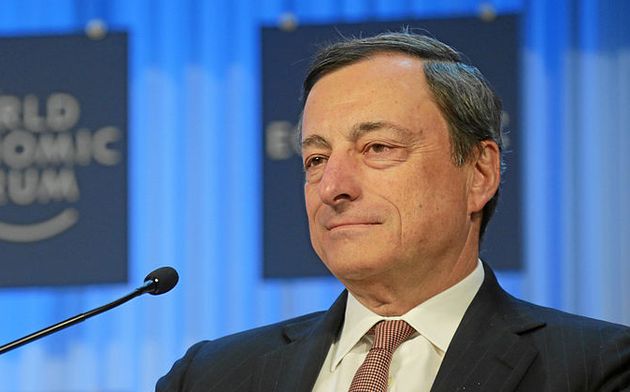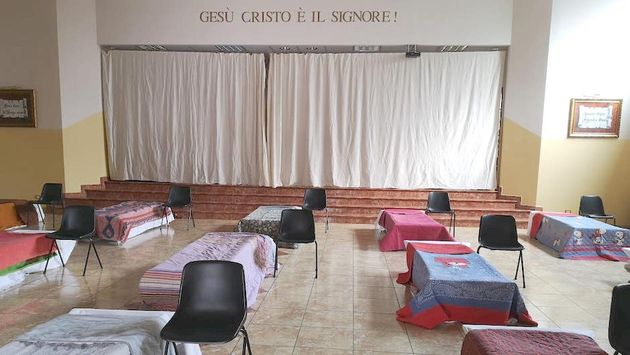Italy negotiates a new government as the third wave of the pandemic hits the country. The Evangelical Alliance calls on Christians to avoid “conspiracy narratives”.
![The last Italian government barely lasted two years. / [link]Daniel Sharp[/link], Unsplash CC0.](https://cms.evangelicalfocus.com/upload/imagenes/601ad6484117a_italy940.jpg) The last Italian government barely lasted two years. / [link]Daniel Sharp[/link], Unsplash CC0.
The last Italian government barely lasted two years. / [link]Daniel Sharp[/link], Unsplash CC0.
Just 509 days after forming his second government, Giuseppe Conte has once again resigned as Prime Minister of Italy.
This is the second time in three years that he has left office, as a result of political disagreement between the members of the coalition. The first time was in 2019, after the breakup between the 5 Star Movement and the League, whose leader, Matteo Salvini, ended up presenting no confidence vote.
This time, it was the party Italia Viva who broke the agreement, which led to Conte's resignation.
“Since 1946 (when it became a parliamentary republic) Italy has a long history of short-termed and ever-changing governments. There is nothing new under the sun”, Leonardo de Chirico, Vice President of the Italian Evangelical Alliance (AEI) and an Evangelical Focus author, told Spanish news website, Protestante Digital.
Italy had just announced a easing of the coronavirus security restrictions that have been in place for weeks in 16 regions of the country. Bars and restaurants will be able to reopen with limited opening hours.
According to the head of the AEI for the Northeast region, Giuseppe Rizza, “the crisis of the Italian government is the result of a complex political situation that no one wanted to face (...) The situation in the country is worrying: more than 88,000 deaths due to the Covid-19, the pandemic remains difficult to contain, a recovery plan needs to be worked out. We have an unprecedented economic and social crisis”.
Both De Chirico and Rizza agree that, after the departure of Italia Viva leader, Matteo Renzi, society “criticised the governement for not having put forward a convincing plan on how to implement to Next Generation EU fund”. The “governement seemed paralysed in dealing with the current pandemic”.
But, above all, the leaders of the Italian Evangelical Alliance believe that the breakdown of the agreement is caused by “centralising power on the Prime Minister, but not having a vision for the near future”.
“I think there is a point in this criticism. The issue is whether a crisis is the best way to argue for it, especially in this difficult season”, De Chirico points out.
This Wednesday the President of the Republic, Sergio Mattarella, met with the former President of the European Central Bank, Mario Draghi, who has accepted a mandate to try to form a so-called “technical government”, on the condition of achieving a parliamentary majority”.
Mattarella aims to avoid new elections, which “seem unlikely, because, according to the new electoral law, in the next legislature MPs will be reduced by 40%”, Rizza says.

Both representatives of the Italian Evangelical Alliance are concerned about how the political situation has been influencing the churches for some time now.
“There are many political positions represented in the Italian evangelical world and the polarisation on some issues is really evident. My impression is that there is a consistent base of people who support populist policies”, Rizza laments.
De Chirico also warns that “while life is getting harder socially and economically and few people understand the intricacies of the ‘Palazzo’ (a metaphor fort he political maneuvering), sectors of the evangelical population are leaning toward populist and conspiracy narratives”.
“They borrow the language of ‘identity politics’ defending a wrong vision whereby Italy is a ‘Christian nation’ as opposed to secularizing trends and wrongly polarising society between ‘us’ and ‘them’ (e.g. immigrants)”, he adds.
According to De Chirico, “This populist temptation simplifies the analysis of the current situation to the point of making it a simplistic caricature and responding to it with anger against the ‘enemy’”.
“There are worrying anti-scientific trends imagining evil conspiracies attached to the whole pandemic, which is seen in apocalyptic terms. In this difficult situation, one can see how poorly assimilated and understood is the biblical view of faith and society and the role of evangelicals in it”, the AEI Vice President underlines.
He stresses that “we have a long way to go to embrace a fully biblical worldview which is realistic and hopeful, providing the grammar to live in a pluralist society, capable of maintaining the tensions between the ‘already’ and the ‘not yet’, fostering the common good as a creative minority, and nurturing the responsibility to be ‘salt and light’”.
Rizza recalls that “this is not a new thing. Christians throughout the centuries have debated the extent to which church and government should interact and have wrestled with divisive political issue”.
“Now it is easy to encounter inflammatory rhetoric against the state and other ‘enemies of the people’ (migrants, minorities, news and media, health authorities). The risk is that those ‘barricades’ and populist faith in unreasoned beliefs will form”, he adds.
The AEI emphasises that, “along with other evangelical bodies, we worked hard to negotiate a protocol with the Italian government to allow the re-opening of church buildings and activities, since the end of May 2020, with restrictions, sucha as masks, social distance,etc”.
De Chirico explains that “even in the ‘red zones’, where people were not allowed to get out unless they had a ‘reason of necessity’, we have maintained our position that church life and worship is a ‘necessary’ aspect of life for us believers and that this ‘need’ is protected by the Constitution”.

[photo_footer]The main premises of a church in Italy that became a big bedroom in May, during the worst time of the lockdown./ Beth Campo.[/photo_footer] “It is important that evangelical Christians understand that it is not the government who has to decide what is necessary and what is not. Worship in gathered assemblies is necessary for our faith and, while we comply with the sanitary measures imposed to all, we claim the freedom to come together as churches”, he points out.
Furthermore, due to the pandemic, “churches and almost all ministries have found themselves more dependent on media. As the situation has been protracted, the churches acceptability and usability of digital platforms, not only for Sunday morning services, but also for several weekly meetings has increased”, Rizza concludes.

Las opiniones vertidas por nuestros colaboradores se realizan a nivel personal, pudiendo coincidir o no con la postura de la dirección de Protestante Digital.
Si quieres comentar o